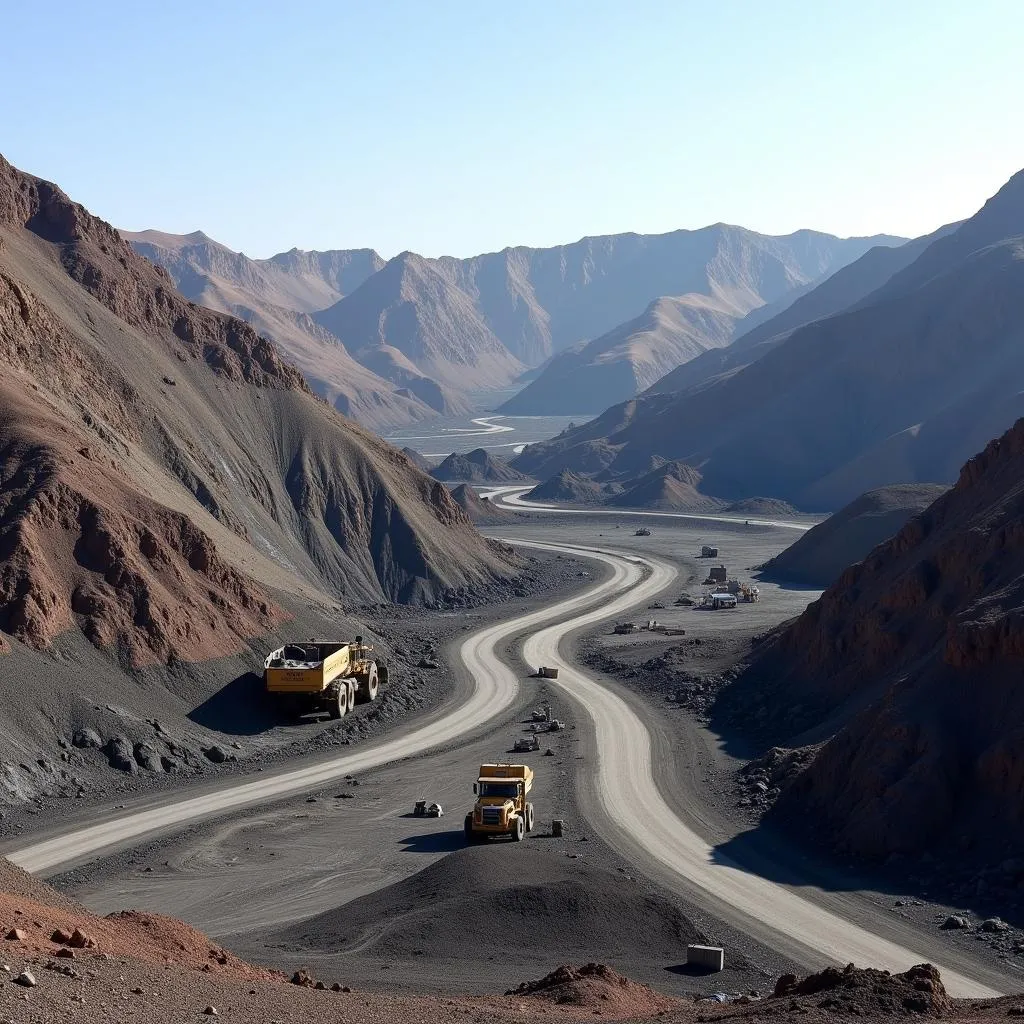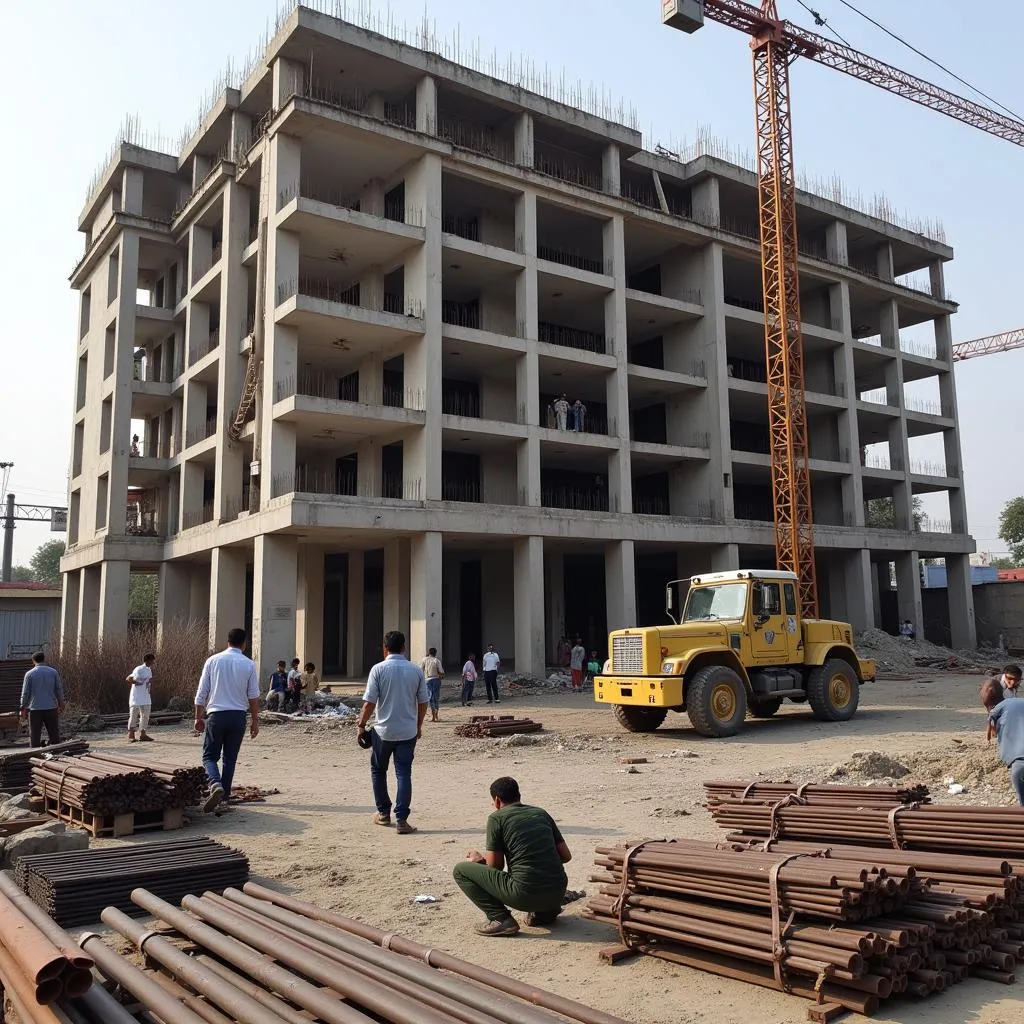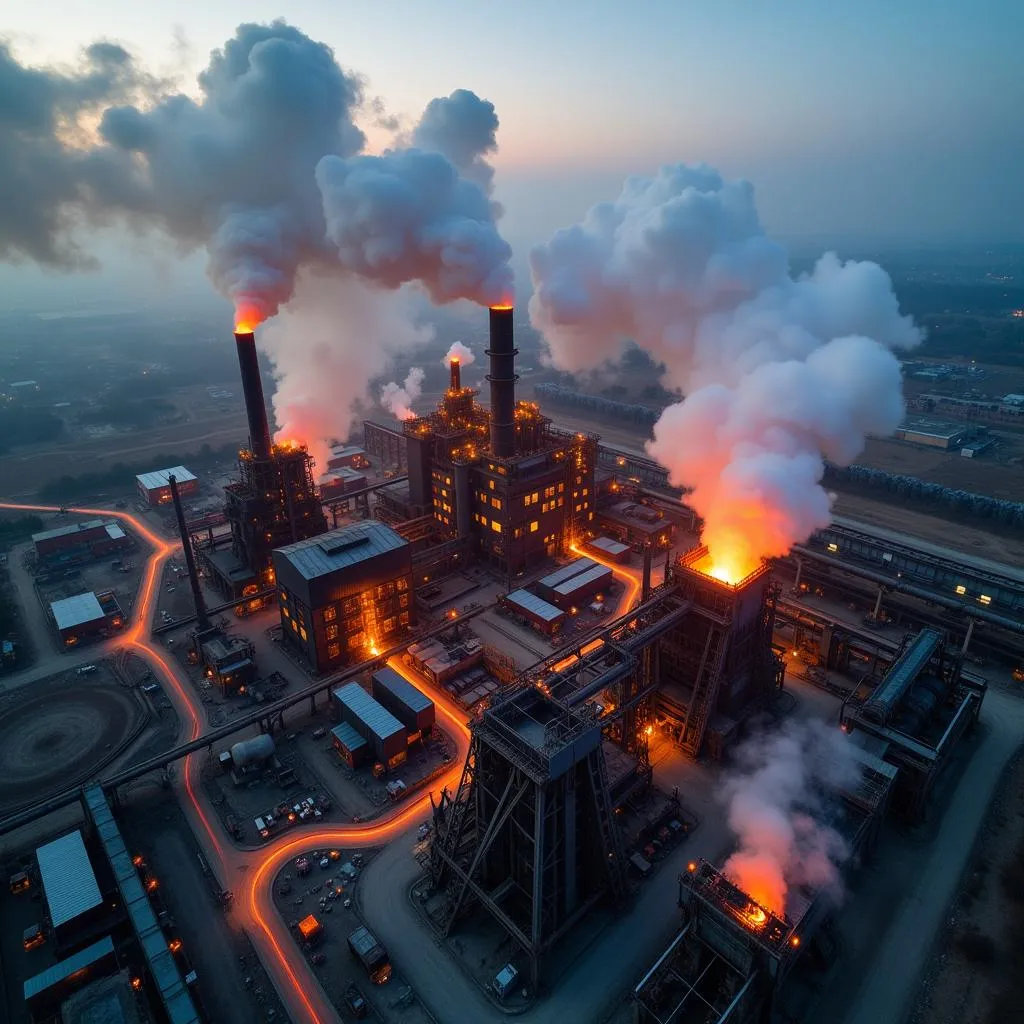Iron is an essential metal, playing a crucial role in various sectors of Pakistan’s economy. From construction and manufacturing to healthcare and infrastructure development, the demand for iron and steel products is consistently high. This article delves into the different aspects of Iron In Pakistan, covering its production, consumption, prices, and the factors influencing this critical industry.
Iron Production in Pakistan
Pakistan’s iron ore reserves are estimated to be around 500 million tons, primarily located in the Balochistan and Sindh provinces. However, the country’s domestic iron ore production is insufficient to meet the growing demand, leading to a significant reliance on imports.
 Iron Ore Mining in Balochistan
Iron Ore Mining in Balochistan
The Pakistan Steel Mills (PSM), established in 1971, was the country’s largest integrated steel producer. However, it has been facing operational challenges and has been non-operational for several years. As a result, Pakistan heavily relies on imported iron and steel products to bridge the gap between supply and demand.
Iron Consumption in Pakistan
The construction industry is the largest consumer of iron in Pakistan, driven by the government’s focus on infrastructure development and the booming real estate sector. The manufacturing sector, particularly the automotive and heavy machinery industries, is another significant consumer.
 Construction Site in Lahore
Construction Site in Lahore
The demand for iron in Pakistan is expected to grow in the coming years, fueled by population growth, urbanization, and government initiatives like the China-Pakistan Economic Corridor (CPEC).
Iron Prices in Pakistan
national iron price in pakistan fluctuate significantly due to various factors, including global iron ore prices, exchange rate fluctuations, and domestic demand-supply dynamics. The government imposes import duties and taxes on iron and steel products, which also impact the final prices.
Challenges and Opportunities in the Iron Industry
Pakistan’s iron industry faces several challenges, including:
- Depletion of high-grade iron ore reserves: The quality of iron ore in Pakistan is declining, leading to increased production costs.
- Reliance on imports: Heavy dependence on imports makes the industry vulnerable to global price fluctuations and currency devaluation.
- Energy shortages: The energy crisis in Pakistan has significantly impacted the iron and steel industry, leading to production cuts and increased costs.
Despite the challenges, there are also opportunities for growth in the iron industry:
- Exploration and development of new iron ore deposits: Pakistan needs to explore and develop new iron ore reserves to reduce its reliance on imports.
- Modernization of existing steel mills: Upgrading existing steel mills with modern technology can improve efficiency and reduce production costs.
- Investment in renewable energy sources: Investing in renewable energy sources can help address the energy crisis and reduce the industry’s carbon footprint.
The Future of Iron in Pakistan
The future of the iron industry in Pakistan is closely linked to the country’s economic growth and development. The government is taking steps to attract foreign investment in the mining and steel sectors and promote the use of local iron ore. The success of these initiatives will be crucial in ensuring the sustainable growth of the iron industry and its contribution to Pakistan’s economy.
 Steel Mill in Pakistan
Steel Mill in Pakistan
FAQs
What is the current iron rate in pakistan?
Iron prices in Pakistan fluctuate frequently. It’s best to check with local suppliers for the most up-to-date information.
What are the main uses of iron in Pakistan?
The construction industry is the largest consumer of iron in Pakistan, followed by the manufacturing sector.
Why does Pakistan import iron?
Pakistan’s domestic iron ore production is insufficient to meet the growing demand, leading to a reliance on imports.
What are the challenges faced by the iron industry in Pakistan?
The iron industry faces challenges such as depletion of high-grade iron ore reserves, reliance on imports, and energy shortages.
What is the future outlook for the iron industry in Pakistan?
The future of the iron industry is promising, with the government taking steps to attract foreign investment and promote the use of local iron ore.
Iron Price Table
| Type of Iron | Price (PKR/ton) |
|---|---|
| Iron Ore | 12,000 – 15,000 |
| Rebar | 150,000 – 170,000 |
| Steel Sheets | 200,000 – 230,000 |
| 1kg iron price in pakistan | Varies based on type |
| Soldering iron price in pakistan | Varies based on brand and features |
Note: These prices are indicative and may vary depending on market conditions.
Common Iron-Related Questions in Pakistan
Q: Where can I find reliable iron suppliers in Pakistan?
A: Reputable online directories and industry associations can provide lists of verified suppliers.
Q: What are the different grades of iron available in Pakistan?
A: The most common grades of iron in Pakistan are mild steel, high-tensile steel, and stainless steel.
Q: Are there any government subsidies for the iron industry?
A: The government offers various incentives to encourage investment in the iron and steel sector.
Related Articles
- Environment of Pakistan Topical Past Papers: Explore the environmental impact of iron mining and steel production in Pakistan.
For any further assistance regarding iron in Pakistan, please feel free to contact us at:
- Phone Number: +923337849799
- Email: [email protected]
- Address: Dera Ghazi Khan Rd, Rakhni, Barkhan, Balochistan, Pakistan
Our dedicated customer support team is available 24/7 to assist you.